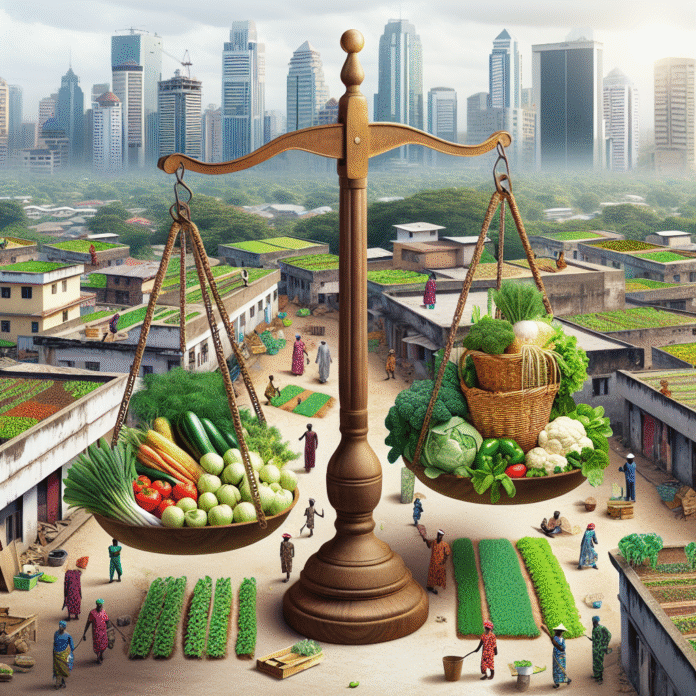Urban Farming’s Role in Nigeria’s Food Security
Can Urban Farming Significantly Enhance Food Security in Nigeria?
Urban farming has emerged as a crucial strategy for addressing food security challenges in Nigeria, a country grappling with a rapidly growing population and increasing urbanization. The traditional agricultural sector faces numerous hurdles, including land scarcity, climate change impacts, and inadequate infrastructure, making urban agriculture a viable solution to ensure food availability and accessibility.
The Rise of Urban Agriculture in Nigeria
In recent years, urban farming initiatives have gained momentum in Nigerian cities, driven by the need for sustainable food production within urban areas. These initiatives range from community gardens and rooftop farms to vertical farming systems that maximize space utilization. By leveraging underutilized spaces and utilizing innovative farming techniques, urban agriculture can produce fresh produce right in the heart of cities, reducing the dependency on rural agricultural outputs.
Enhancing Food Security through Local Production
Urban farming plays a pivotal role in enhancing food security by promoting local food production. This localized approach reduces the reliance on long supply chains, which can be vulnerable to disruptions. By growing food closer to consumers, urban farms can help ensure a consistent supply of fresh vegetables, fruits, and herbs, ultimately contributing to better nutrition and health outcomes for urban residents.
Furthermore, urban farming can decrease food prices by cutting transportation costs and minimizing spoilage. This affordability can make nutritious foods more accessible to low-income families, thereby improving overall food security in urban areas.
Economic Opportunities and Job Creation
Beyond improving food security, urban farming presents significant economic opportunities. It creates jobs not only in farming but also in related sectors such as distribution, marketing, and processing. By empowering local communities and fostering entrepreneurship, urban agriculture can stimulate economic growth and resilience, particularly in cities with high unemployment rates.
Additionally, urban farming can serve as a platform for youth engagement, encouraging younger generations to pursue careers in agriculture and sustainable practices. Educational programs and workshops can further enhance skills and knowledge, making urban farming a catalyst for community development.
Challenges and Solutions
Despite its potential, urban farming in Nigeria faces several challenges, including limited access to land, inadequate funding, and regulatory hurdles. To overcome these obstacles, it is essential for the government to implement supportive policies that promote urban agriculture, such as providing access to land for farming and offering financial incentives for urban farmers.
Moreover, collaboration between local governments, non-governmental organizations, and community groups can help provide the necessary resources and training to aspiring urban farmers. Implementing technologies like hydroponics and aquaponics can also enhance productivity and sustainability in urban farming practices.
The Future of Urban Farming in Nigeria
As Nigeria continues to urbanize, urban farming will play an increasingly vital role in ensuring food security. By harnessing the potential of urban agriculture, Nigeria can create a more resilient food system that not only meets the nutritional needs of its growing population but also supports economic development and environmental sustainability.
In conclusion, urban farming is not just a trend; it is a transformative approach that can significantly contribute to Nigeria’s food security. By fostering local production, creating job opportunities, and addressing challenges through collaborative efforts, urban farming can pave the way for a more sustainable and food-secure future for the nation.


